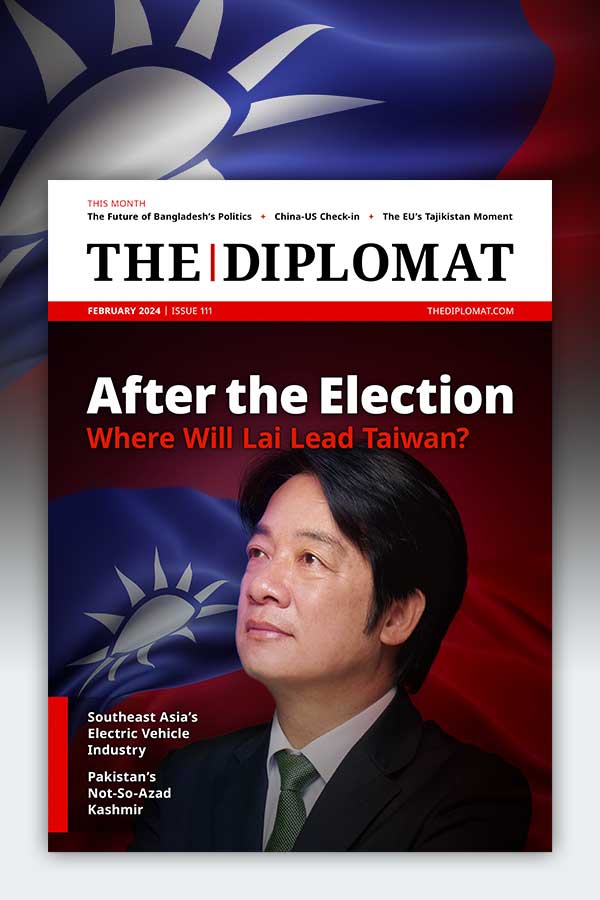| Welcome to the latest issue of Diplomat Brief. This week our top story explores the motives and means behind North Korea’s new emphasis on rural development. We also have an interview with Jack Adamović Davies, a journalist who served as the lead author of a major investigative report into the clandestine dealings of the Prince Group, a multi-billion-dollar Cambodian conglomerate. |
| Story of the week | ![[object Object]](https://thediplomat.com/diplomat-brief/2024/vol07/images/feature.jpg?v=1) | Politics What’s Driving Kim Jong Un’s New Regional Development Policy?What Happened: In January, North Korea unveiled the “regional development 20×10 policy,” a plan to build manufacturing facilities in 20 cities and counties every year over the next 10 years. The announcement came with a stunning acknowledgement from top leader Kim Jong Un that there is a massive gap in living conditions between Pyongyang and the rest of the country (known collectively as “the provinces”). While North Korea has made token efforts to spark economic growth in the provinces before, this time Kim seems serious – he set up a new body, headed by his most trusted apparatchik, to carry out the 20x10 policy. Our Focus: The inequality between Pyongyang and the rest of the country has created a groundswell of discontent. The pandemic made things worse by decimating the few sources of income for the provinces: cross-border trade and tourism and foreign investment. Now Kim is working actively to address the dire economic situation. The big question is whether he can succeed. What Comes Next: It’s still unclear how much funding North Korea will devote to the project and where that money will come from, especially as Kim simultaneously pursues a massive (and expensive) military modernization project. Diverting the funds typically lavished on Pyongyang could foster discontent in the North Korean elite class, whose support is crucial for the Kim regime. With few options, we could see the provinces being harshly taxed to pay for the rural development plan. As Lee Sang-yong wrote for The Diplomat, “The likely result is an absurd situation in which a policy designed to win the hearts of the people is implemented by picking their pockets.” Read this story |
| Behind the News | INTERVIEW Jack Adamović DaviesJack Adamović Davies, the lead author of a major investigative report into the clandestine dealings of the Prince Group, on Cambodia’s transformation into a money laundering hub: “It is possible to turn up in Cambodia with boatloads of dirty cash and build not just a web of shell companies to mask it, but instead an entire Potemkin business empire to justify your wealth’s existence – providing you get the right politicians on your side.” Read the interview |
| This Week in Asia | Northeast Asia Lunar New Year Brings a Wave of CCP PropagandaEvery year, billions of people in eastern Asia celebrate the Lunar New Year, which this year fell on February 10. In China, the ancient holiday comes with a modern twist: major political messaging efforts from the Chinese Communist Party. The biggest is the China Central Television (CCTV) annual Spring Festival Gala, the most-watched TV program in the world, which sets the stage for the CCP’s key narratives. It’s also traditional for top CCP leaders to travel to far-flung villages or towns to interact with “ordinary” (albeit carefully selected and vetted) people. The visits are extremely choreographed and controlled, but still provide a window into CCP messaging and the party’s points of emphasis for the new year. Find out more | South Asia Pakistan’s Politics in FluxPakistan’s election on February 8 delivered a shock: Independent candidates affiliated with the PTI, the party of former Prime Minister Minister Khan, won more seats than any other bloc. This was despite Khan being in jail and his PTI facing a pressure campaign that forced party members to run as independents. Even if its candidates reconsolidated as a party, though, the PTI would only hold 93 seats – well short of the 134 needed to govern. The other major parties, the PML-N and the PPP (widely perceived as having the backing of Pakistan’s powerful military), won 75 and 54 seats, respectively. They are now in discussions to form a coalition government, but the impressive public support for the PTI, despite the many obstacles put in its way, could signal unrest in the future. Find out more | Southeast Asia Indonesia Goes to the PollsOn Wednesday, Indonesia holds the world’s largest single-day election. Up to 205 million people will select the country’s next president, as well as executive and legislative representatives at other levels of government. In pole position is Prabowo Subianto, a former special forces commander who currently serves as the minister of defense in President Joko Widodo’s cabinet. This is in no small part due to the fact that his running mate is the son of the president, who continues to enjoy sky-high approval ratings. The latest opinion polls put Prabowo well ahead of his two rivals, ex-Central Java Governor Ganjar Pranowo and Anies Baswedan, the former governor of Jakarta. As election day approaches, the main question is whether or not Prabowo will succeed in winning more than 50 percent of the vote, thus avoiding a run-off election in June. Find out more | Central Asia Kyrgyzstan’s Controversial “Foreign Representatives” Bill Moves ForwardKyrgyzstan’s “foreign representatives” bill is on the cusp of becoming law. It has passed two of the three necessary readings in parliament, and the third is expected soon. The bill would place restrictions on receiving foreign funding – a lifeline for Kyrgyzstan’s NGOs, civil society, and even media outlets. A similar bill faced fierce opposition when it was proposed in 2016; its resurrection now and apparently imminent passage, despite the same opposition, is another sign of Kyrgyzstan’s rapid democratic decline. Find out more |
| Visualizing APAC |  | The harbor at Ngapali, in the southern part of Myanmar’s Rakhine State, is crowded with boats. In a bid to stop potential arms shipments from reaching the Arakan Army, the junta has stopped all boats from leaving the bay, decimating the vital fishing sector. See the full picture |
| Word of the Week | Politics Mae Nam KhongA Thai and Lao phrase meaning “Mother Water” – and the origin of the name for the Mekong River. Find out more |
|  |

![[object Object]](https://thediplomat.com/diplomat-brief/2024/vol07/images/feature.jpg?v=1)

